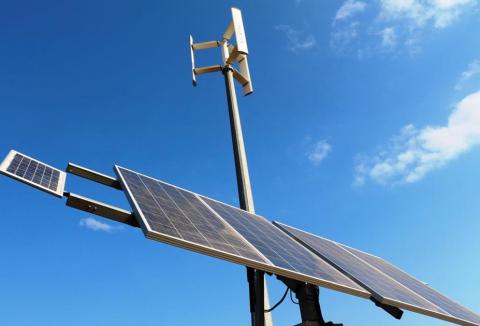ECREEE and IRENA start a capacity needs assessment for clean energy mini-grids in the ECOWAS region
ECOWAS Centre for Renewable Energy and Energy Efficiency (ECREEE), in collaboration with the International Renewable Energy Agency (IRENA), have started a clean energy mini-grids capacity needs assessment in West Africa, as a first step towards the expansion of a joint capacity building support to ECOWAS member states.
Providing sustainable energy is one of the world’s greatest challenges. Access to modern energy services is an essential requirement to meet domestic and productive energy needs. While considerable progress has been made in the last decade, and in spite of rapid strides made by some countries an estimated 1.1 billion people still lack access to electricity. Of these two-thirds of the population (620 million) are from sub-Saharan Africa according to the International Energy Agency’s Africa Energy Outlook. People most affected by the situation live in rural and remote areas far beyond the electrical grid or with limited supply off the grid. They in turn rely on traditional sources of energy, such as charcoal, wood, animal waste for cooking and heating purposes and kerosene or candles for lighting.
Since 2012, ECREEE in partnership with IRENA, under the framework of the ECOWAS Program on Access to Sustainable Electricity Services (EPASES), has worked on “Promoting a Sustainable Market for Solar Photovoltaic Systems in the ECOWAS Region” (ProSPER) to strengthen the capacity of policy makers and regulators, local SMEs through a regional entrepreneurship incubation centre, and financial-institution managers to accelerate renewable energy deployment, with a specific focus on solar PV systems.
ECREEE and IRENA are now expanding their capacity building collaboration in West Africa to clean energy mini-grids.
The first activity of this new phase will be to undertake the scoping of capacity needs for deployment of clean energy mini grids in the ECOWAS region and provide a regional action plan for building capacities and skill sets. The study will build on and complement the existing general work conducted for the assessment of capacity and training needs as well as capacity building activities for renewable energy and energy efficiency in West Africa. This will require engaging with key private and public stakeholders from different sectors in all the ECOWAS countries including operational mini grid sites in these countries.
The scoping study will be compiled by the end of the year and and validated in a multi-stakeholders regional workshop involving ECOWAS member states.





